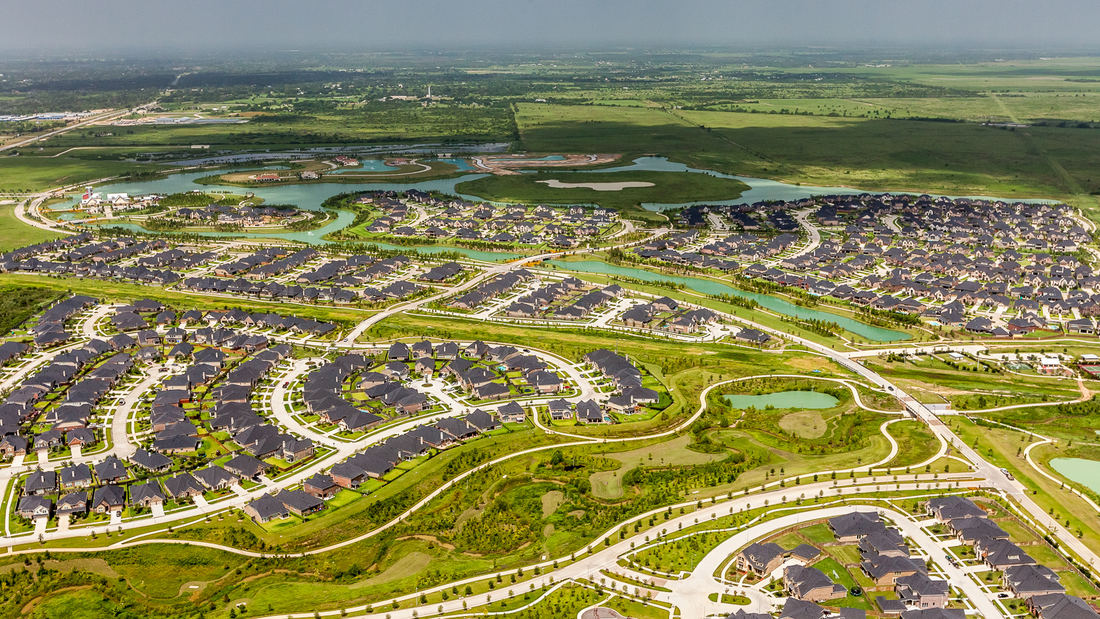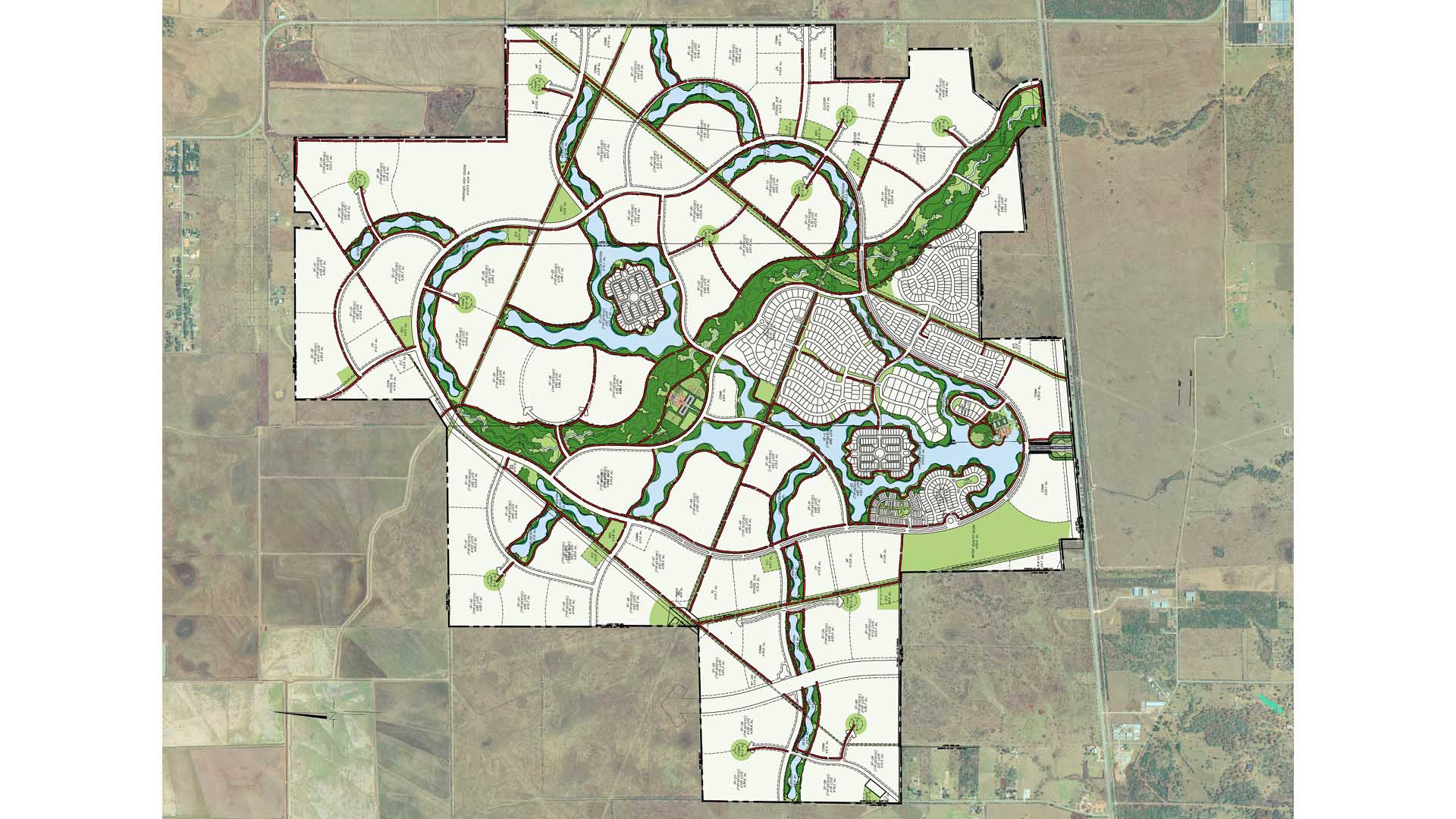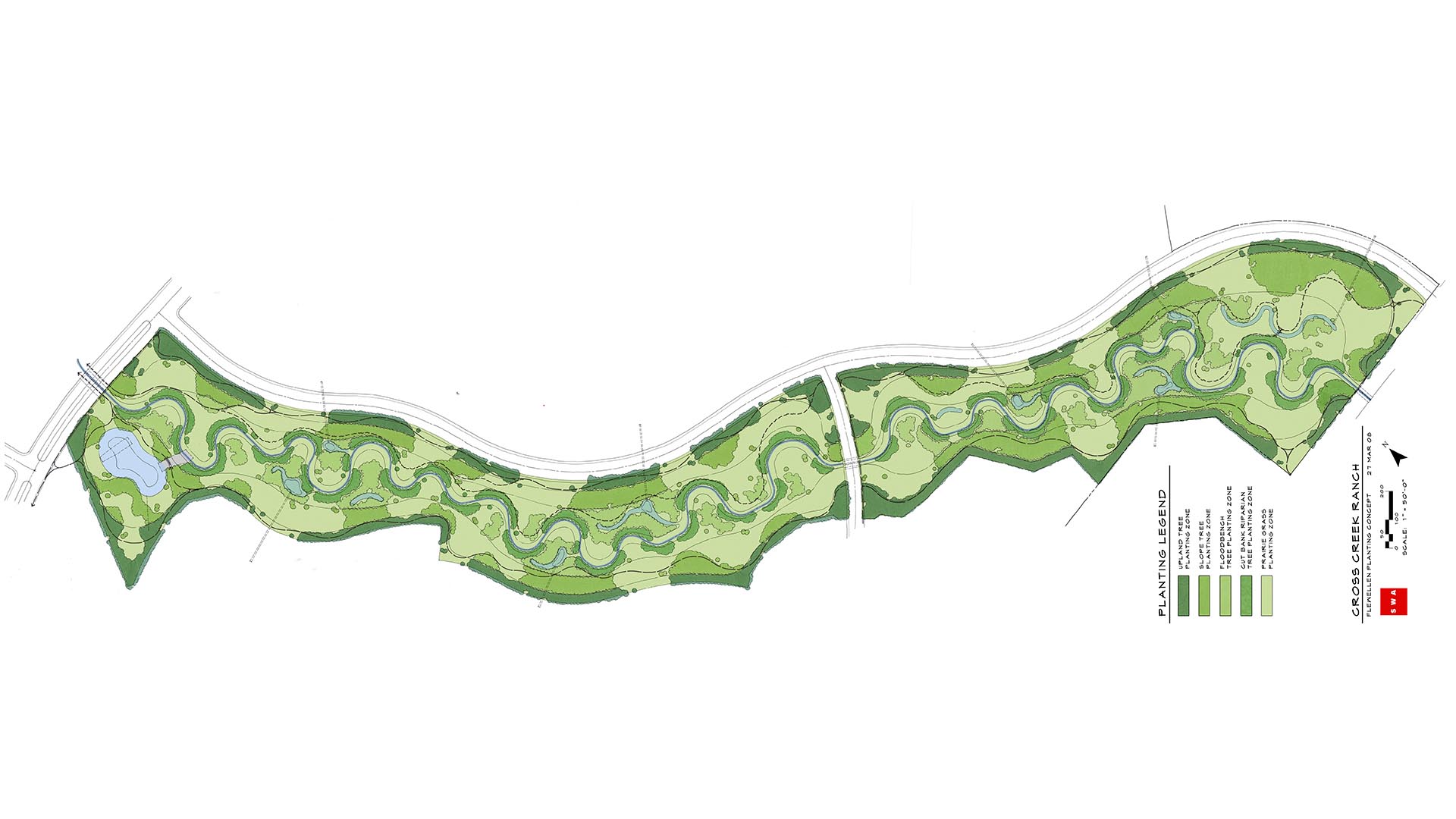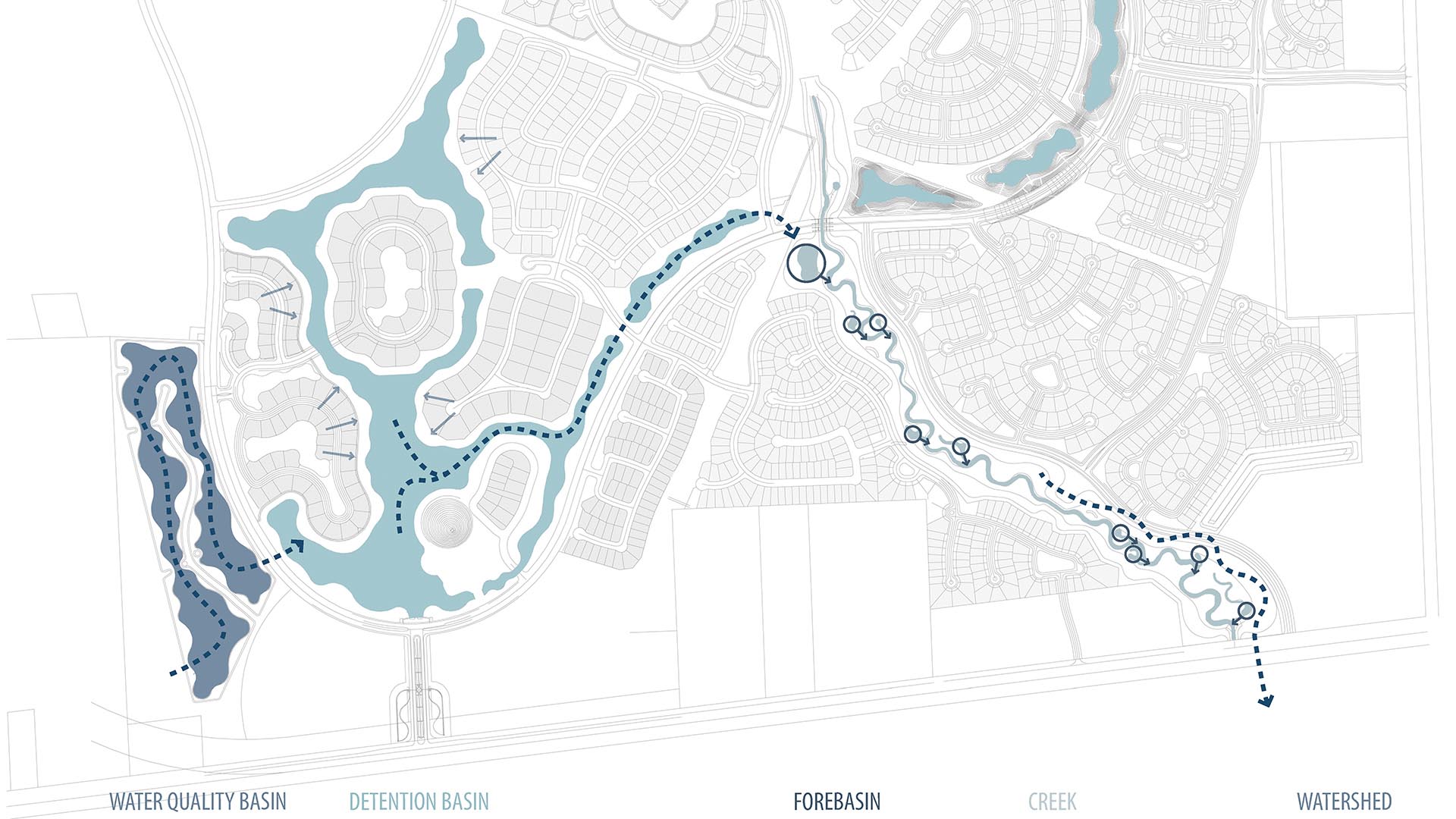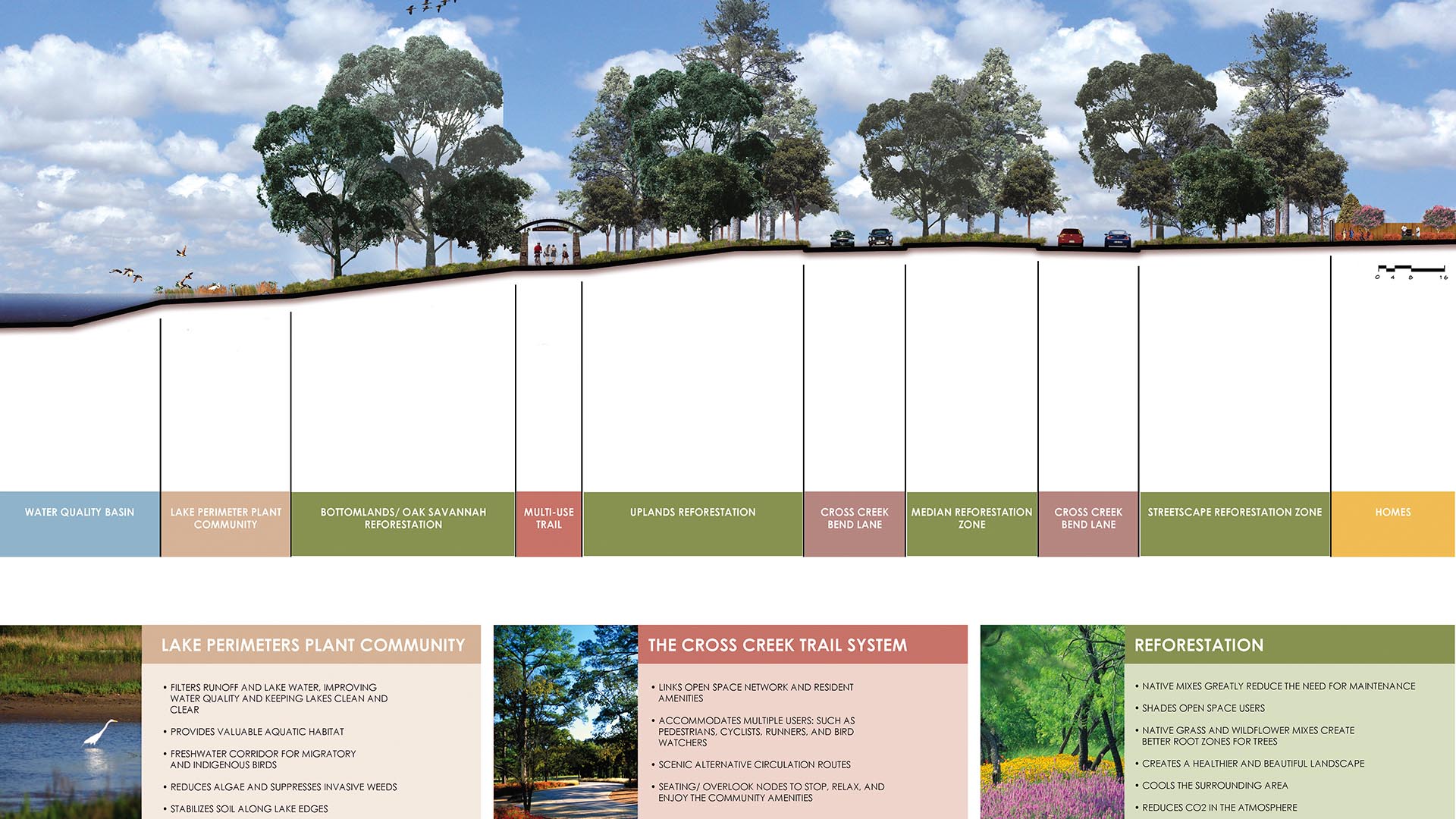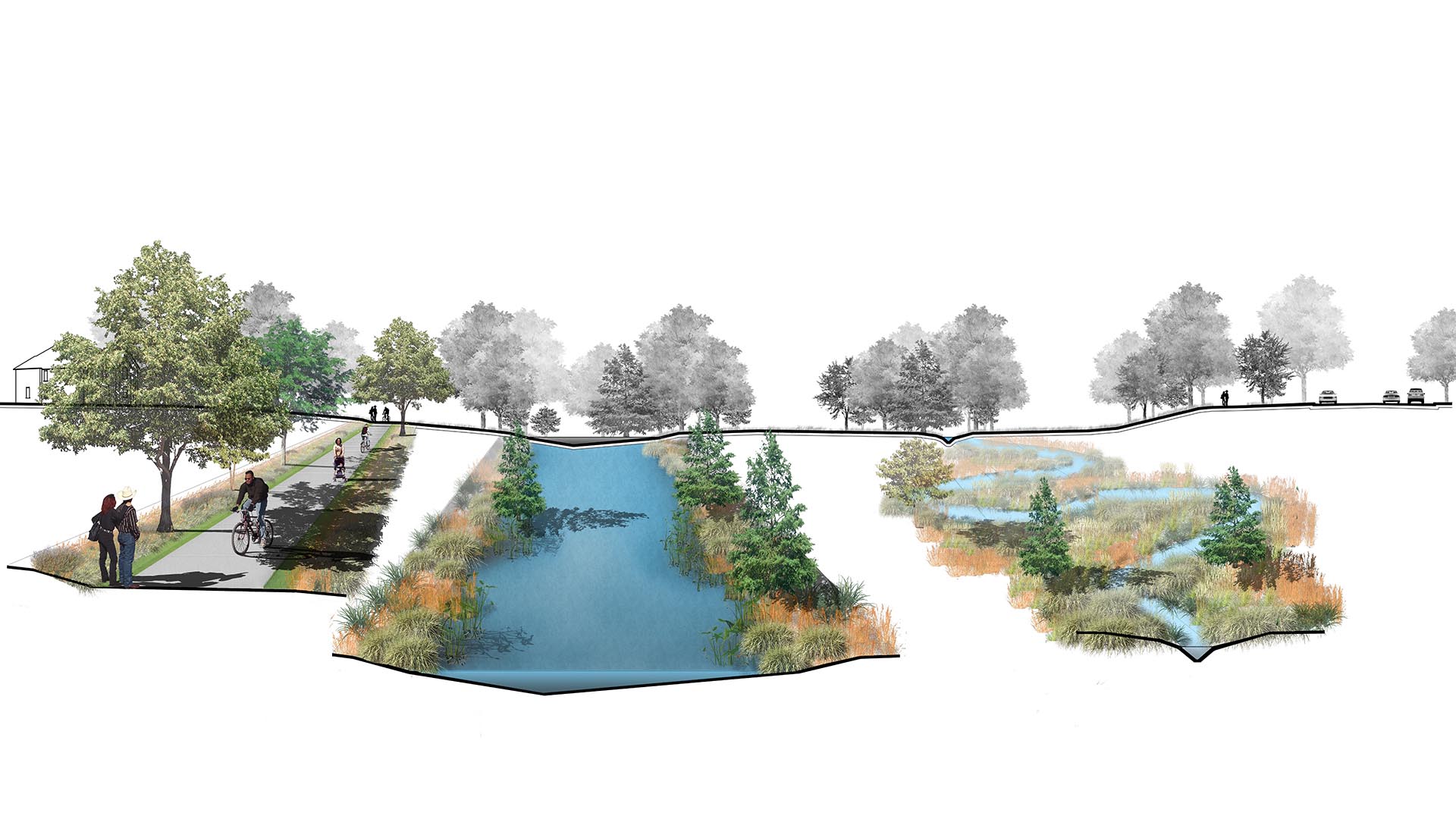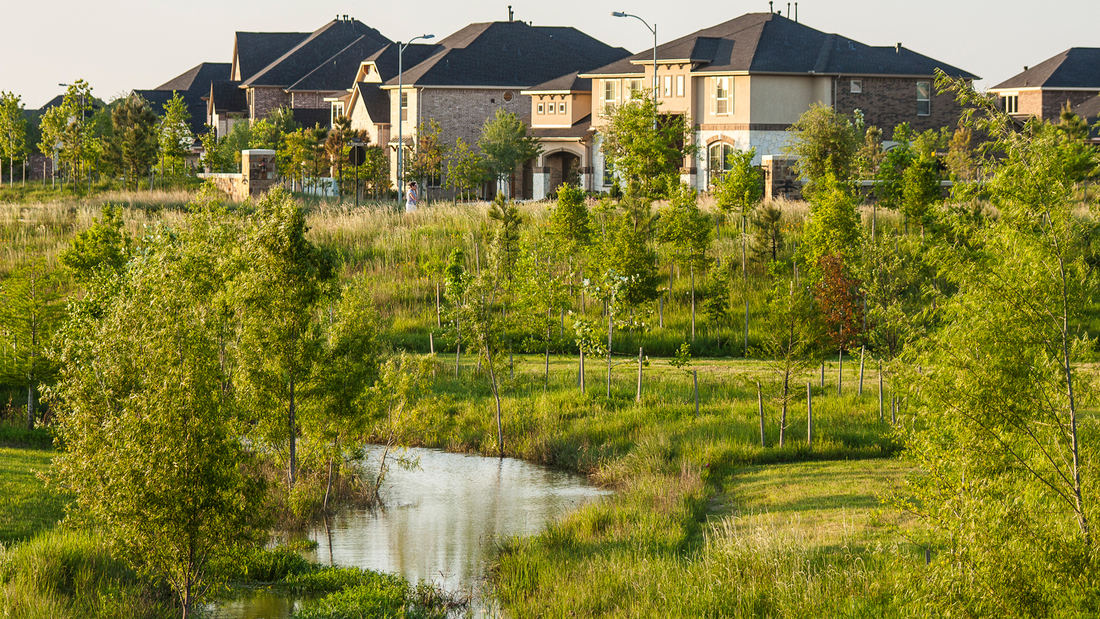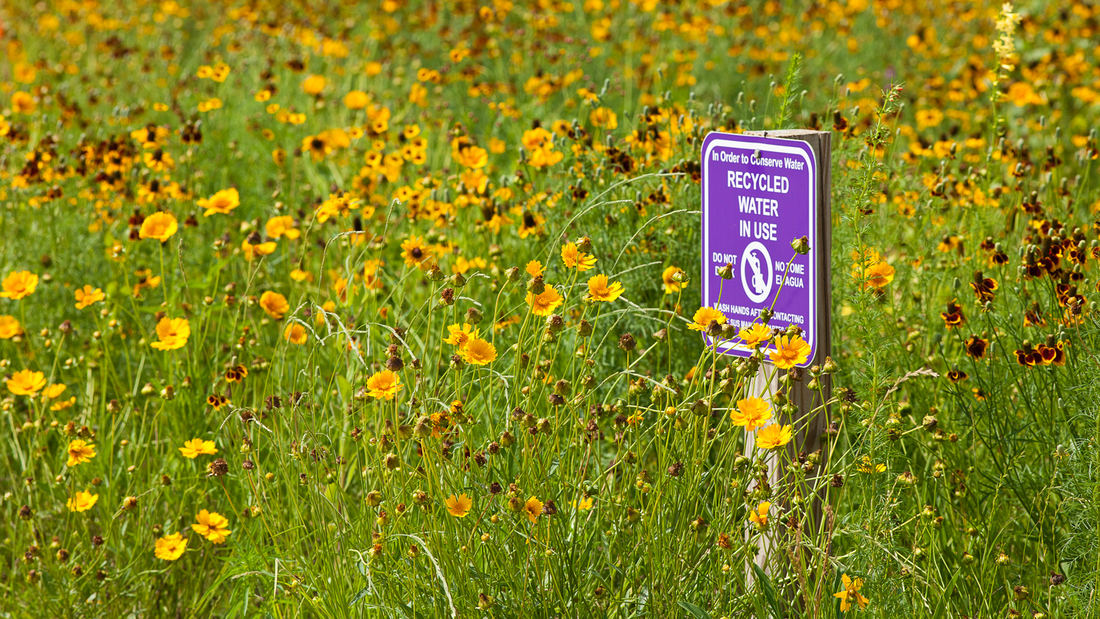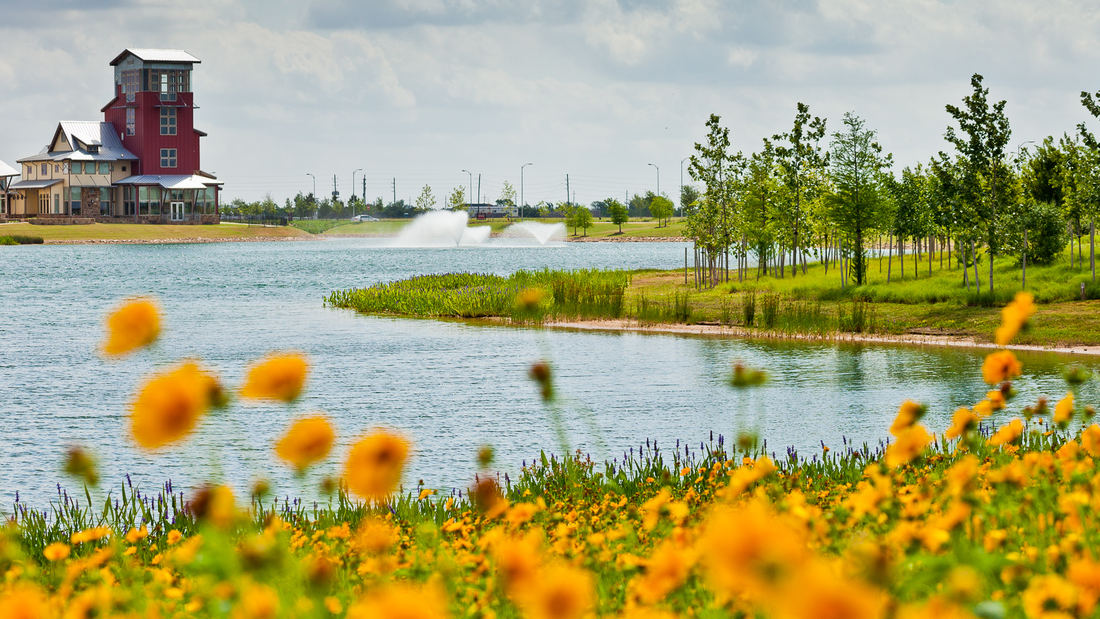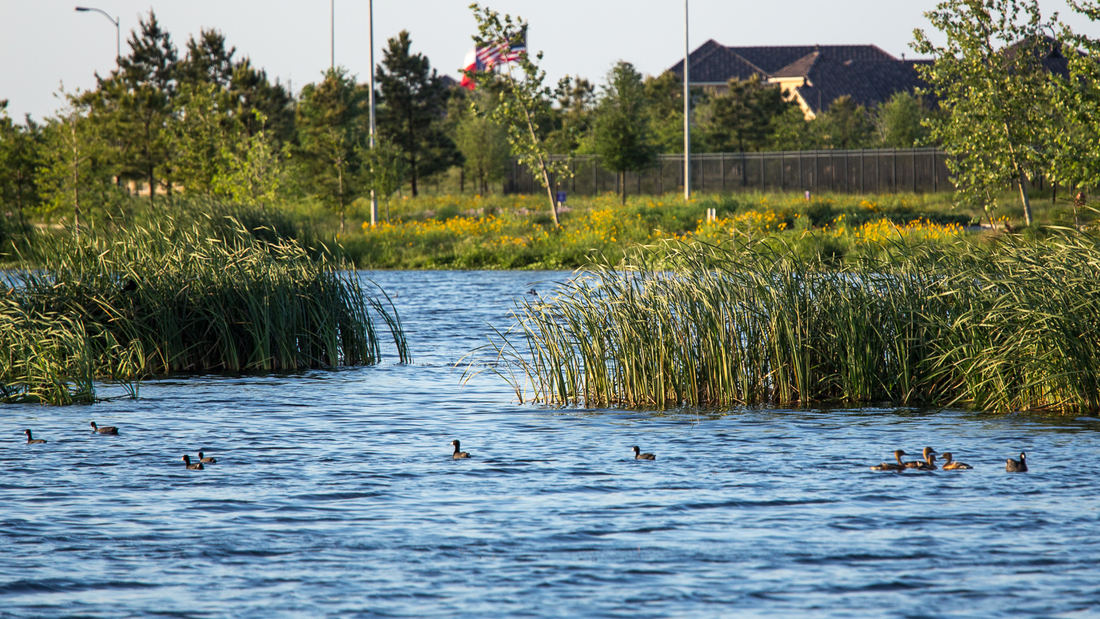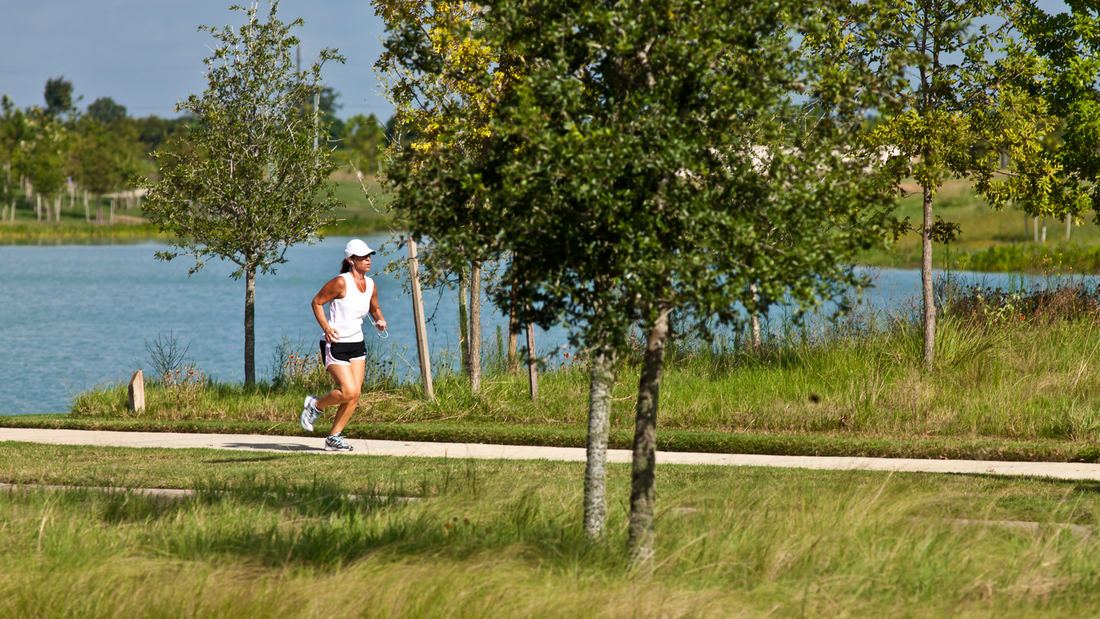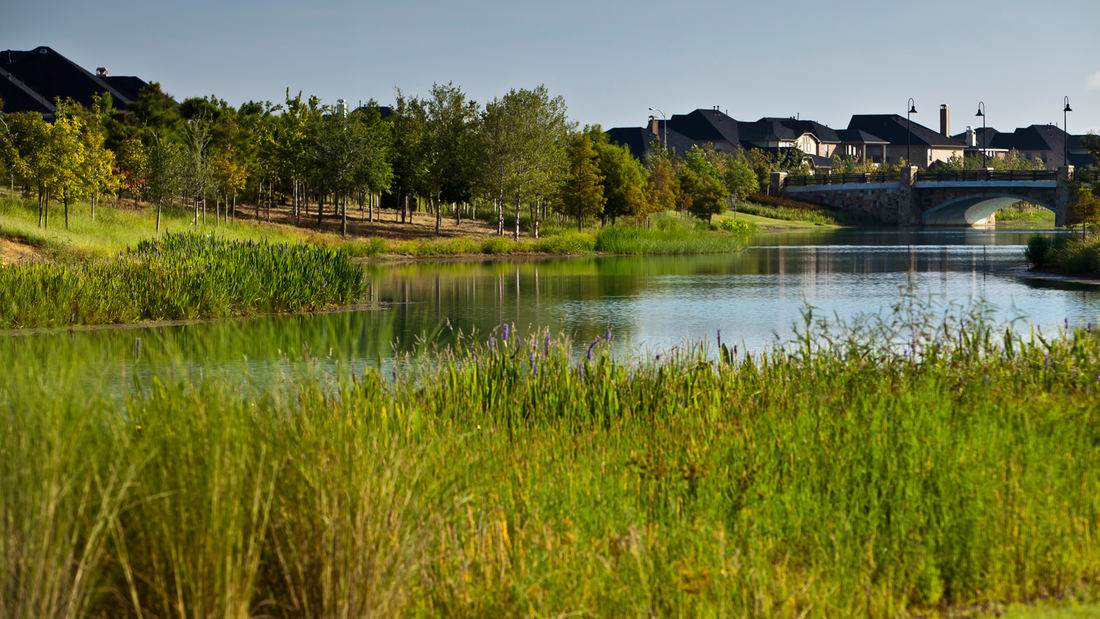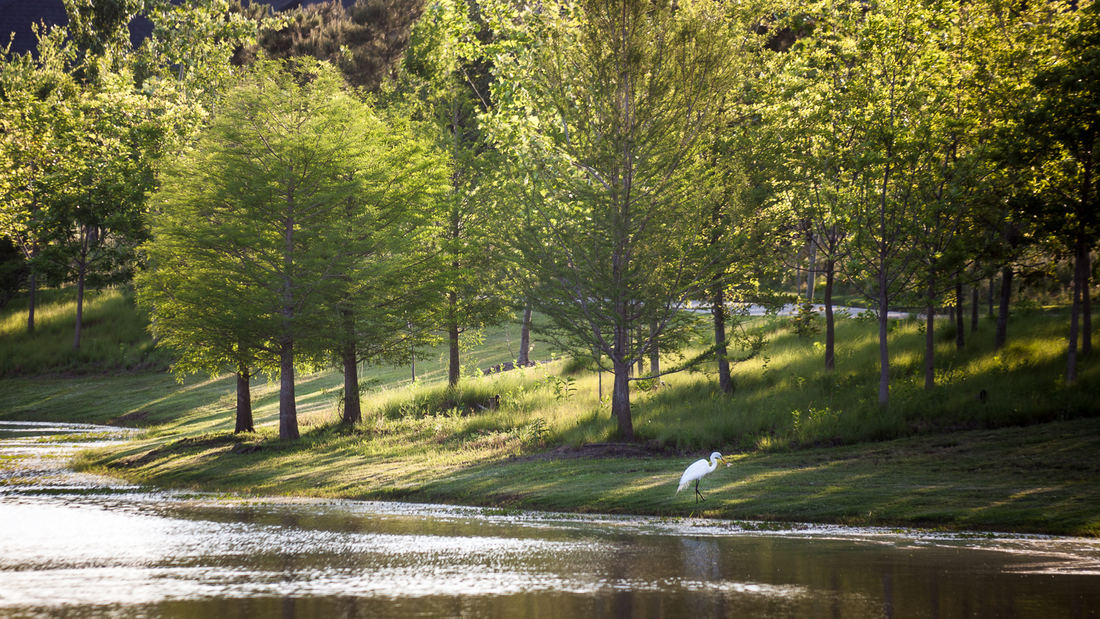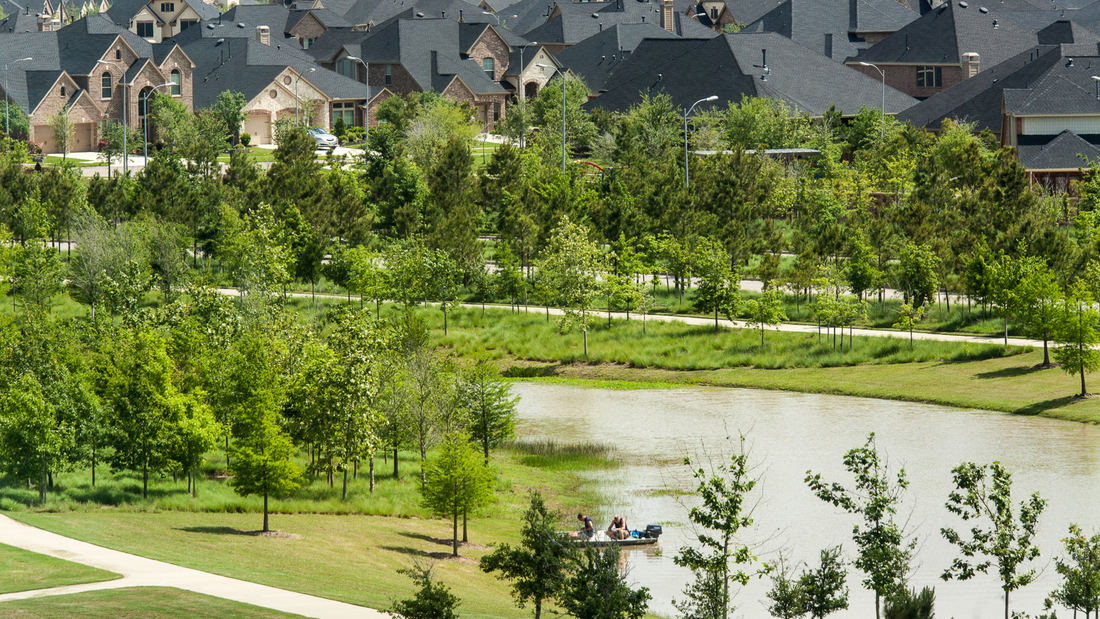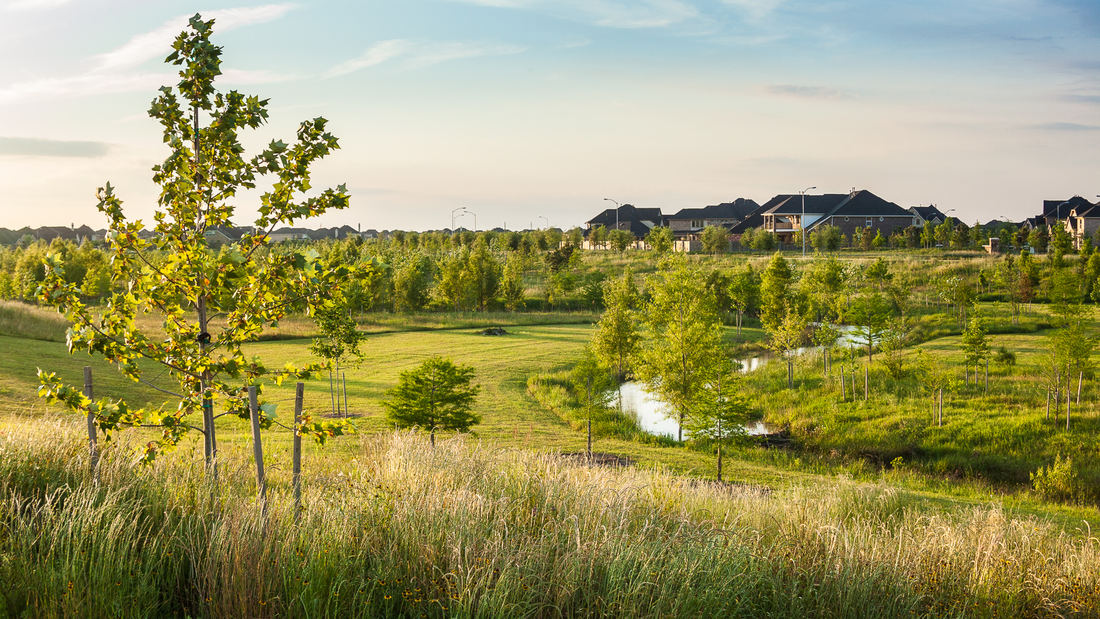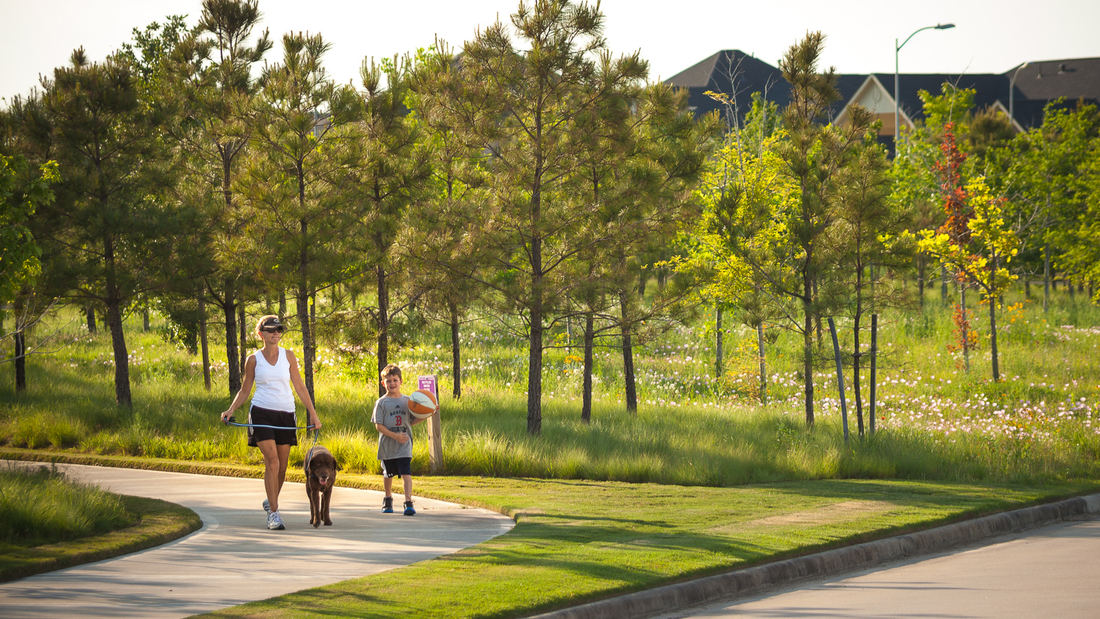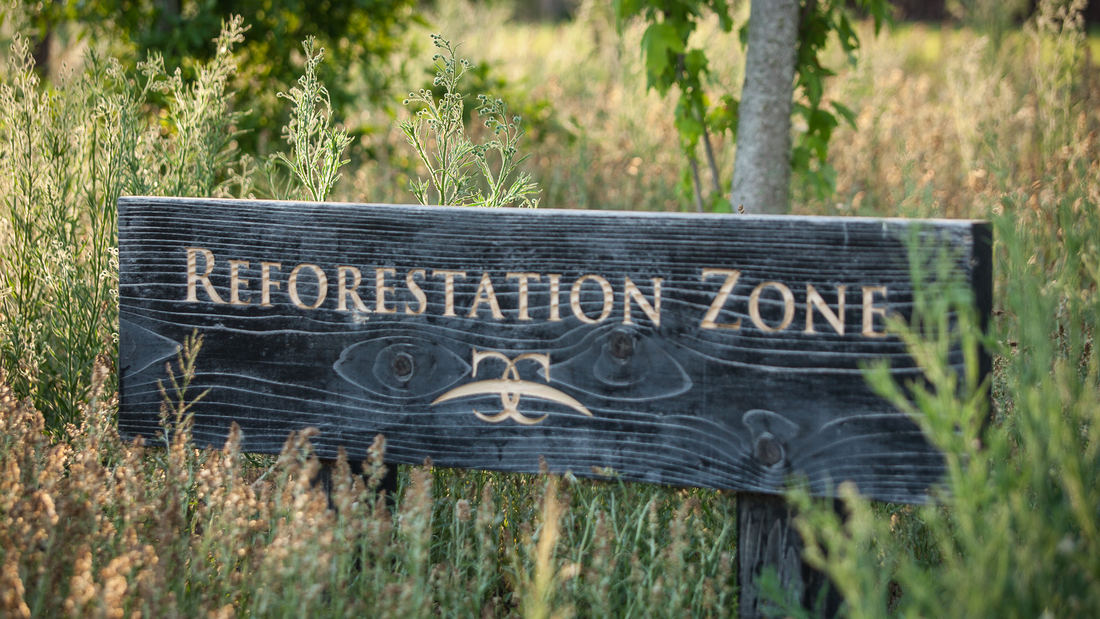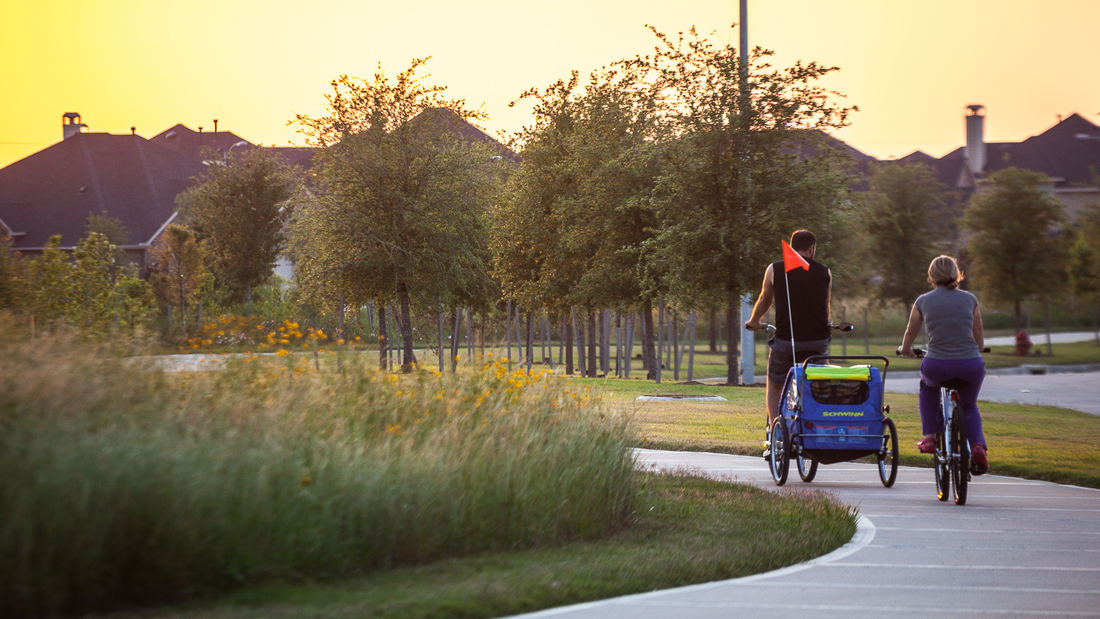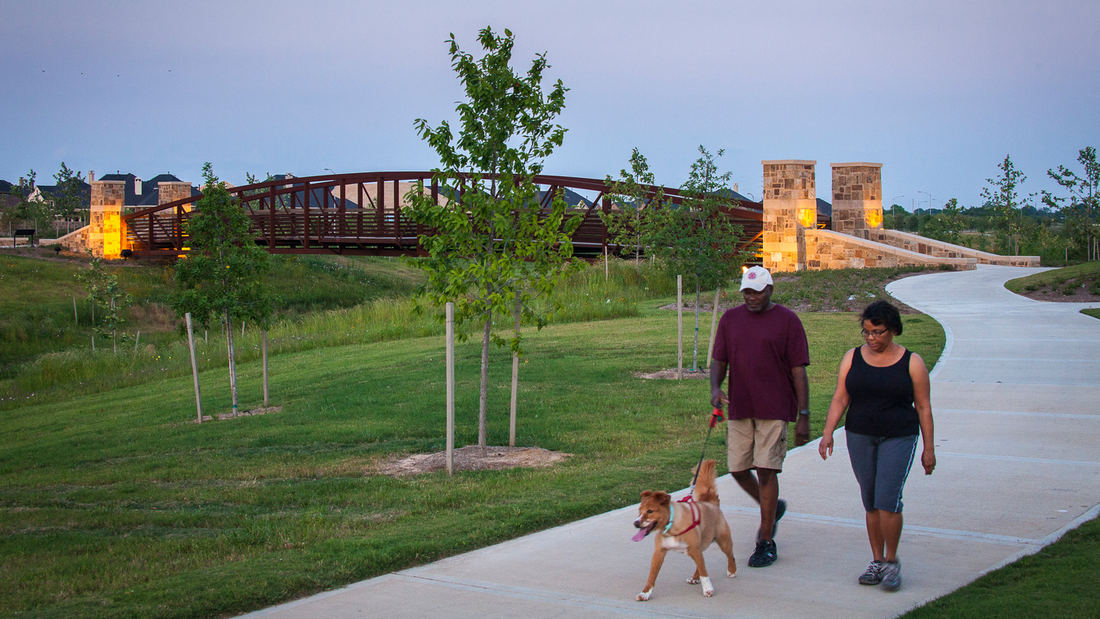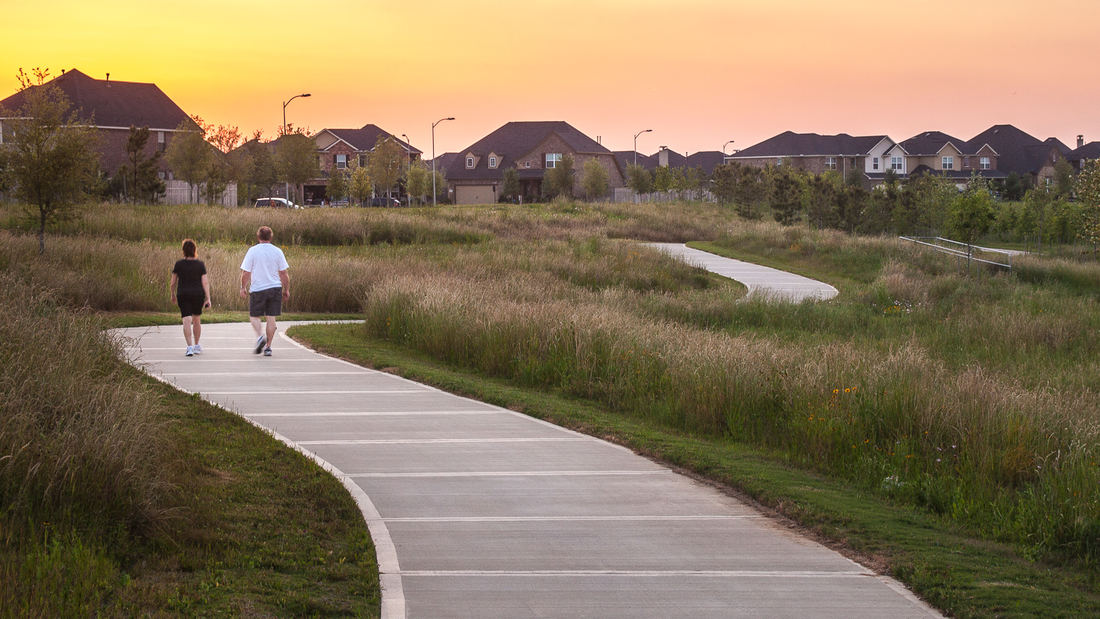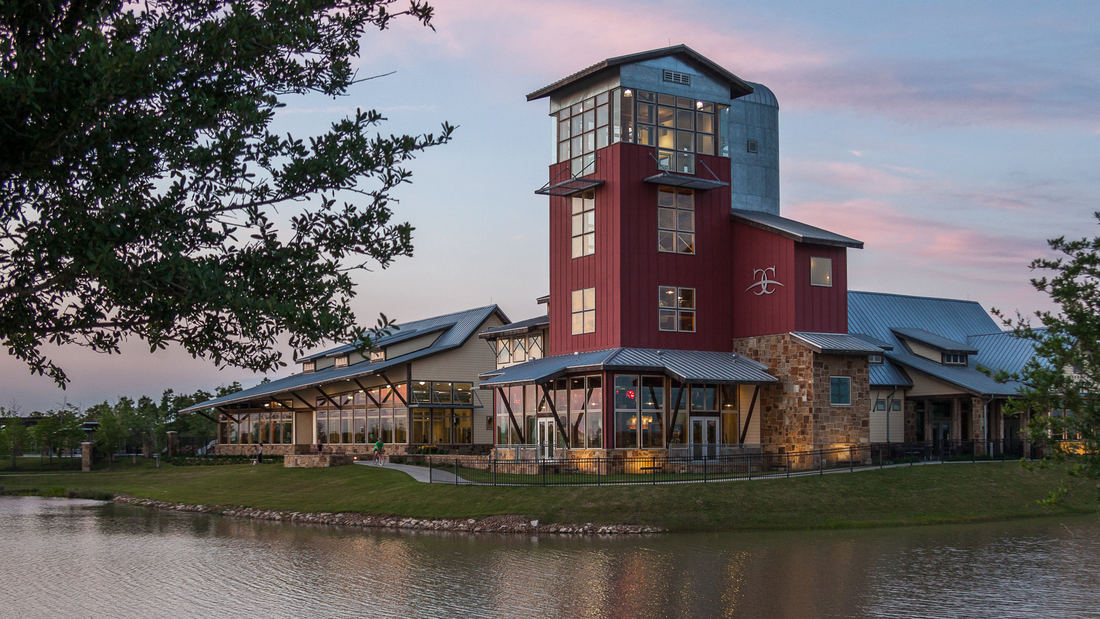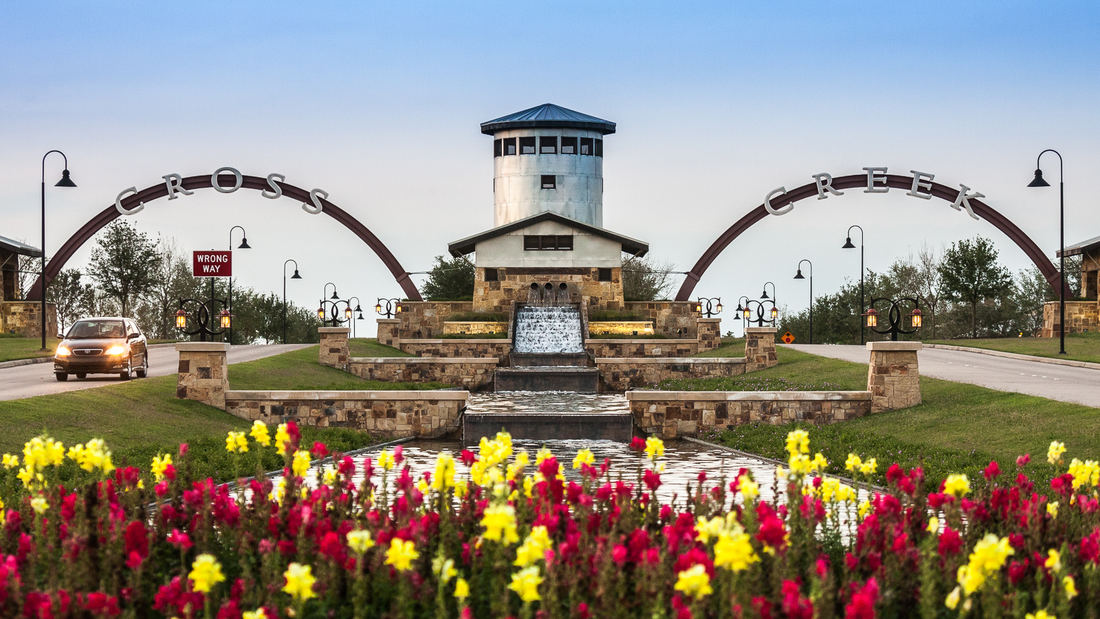As urban areas expand, degraded lands robbed of natural resilience and biodiversity often lie in development’s path—presenting both challenges and opportunities. The Flewellen Creek Restoration project transforms a derelict 130-acre ranching ditch into a vibrant 3-mile ecosystem, anchoring the new 3,200-acre Cross Creek Ranch community.
Rooted in biomimicry and fluvial geomorphology, the design re-establishes natural creek dynamics. Reintroduced meanders double the creek’s length, creating a 450 to 600-foot-wide floodplain corridor, which shielded surrounding homes during Hurricane Harvey. A 50-acre polishing pond and water treatment facility feed the creek while filtering community irrigation water.
Indigenous vegetation replaces invasive species, establishing riparian forests, prairie meadows, and water-cleansing wetlands. Wildlife has returned in abundance, with native fish, turtles, and migratory birds thriving among strategically placed habitat structures. The endeavor yields impressive annual results: a 65% decrease in mowing expenses, an 81-ton reduction in fertilizer use, 4 million gallons of drinking water saved, and 184 tons of carbon sequestered per acre.
With 42% of residents living adjacent to the re-naturalized space, multi-use trails, boardwalks, and platforms invite exploration of the ecotones. The Arbor Park Sports Complex and disc golf course nestled amid the natural beauty further enhance daily life in this community. This multi-award-winning project is a paragon of restorative excellence, proving that nature and community can gracefully coexist. It demonstrates how conscientious designers can transform environmental challenges into opportunities, creating sustainable, resilient spaces that benefit both ecosystems and residents.
Next C
Next C Water City is a new, fully self-contained sustainable city planned for 500,000 residents. Water was central to the Next C planning concept, supplied by two adjacent rivers and monsoon rains. The city is a system of wetlands, rivers, lakes, and canals, cleansing the water from up-river communities and managing floods during the monsoon season. Working wi...
Lin'an High Tech Park
Lin’an Qingshan Lake Forest Technology Park offers a premier destination for high-tech and green-tech businesses. Designed in harmony with nature, this mixed-use community will foster productivity and connections to its physical and cultural setting, providing a vibrant mix of uses and a business culture appealing to a wide range of international enterprises. ...
Santaluz
This planned community 30 minutes north of San Diego is a testament to the collaboration of a visionary client, talented land planner, and creative designers and marketers. Set gracefully on its rolling site and preserving over half its acreage as open space, Santaluz is both a model of environmental planning and a financial success, out-performing all its loc...
Woodson’s Reserve
This new master-planned community challenges conventional thinking by preserving wetland areas and open space while achieving an optimal mix of housing products and amenities. A robust local economy has elevated demand for both commercial space and single-family housing. The master plan for Woodson’s Reserve targets active families and those who enjoy outdoor ...


